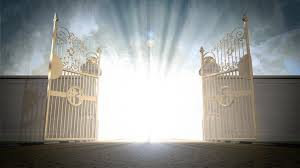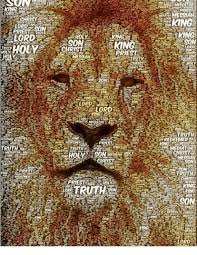Cm – The Certainty of Redemption 8: 31-39
The Certainty of Redemption
8: 31-39
The certainty of redemption DIG: What is Paul’s point in verses 31-35? What is Paul’s point in raising these? What can truly give believers freedom from discouragement? How would the forces in verses 38-39 disrupt our trust in God’s love? How can you be sure there will be no separation between you and God? How does this section sum up Paul’s message so far?
REFLECT: How does Paul’s benediction about God’s love encourage you? Are you struggling through some difficulties in your life? Nothing in all creation can separate you from the love of God that is in Messiah Yeshua. How can you tell the difference between Satan’s accusations and the Ruach’s conviction of my sins? How certain are you of your salvation?
There is no guilt because of our justification in the past,
there is no condemnation because of our sanctification in the present,
and there is no separation from ADONAI because of our glorification in the future.

It is not uncommon even for believers to want to give up at times. Feeling like a failure is familiar territory for all of us. But Paul’s words make it clear that quitting is not an option for us. Nothing will be able to separate us from the love of God. The Ruach Ha’Kodesh will help us go forward and live in His freedom of forgiveness.240
What, then, are we to say to these things (8:31a)? Judging from what Paul says in the rest of the passage, these things doubtless refer to the issues he has already dealt with in Chapter 8. Much of what he says in these verses relates to the doctrine of Messiah’s substitutionary atonement, but the specific focus is still on the security that His atonement brings to those who believe in Him. Paul realizes that many fearful believers will still have doubts about their security and that false teachers would be ready to exploit those doubts. To give such fearful believers the assurance they need, Paul reveals Ruach’s answer to this critical question: Can any person or any circumstance cause a believer to lose his salvation?
Dear Heavenly Father, Praise You for being so wonderful! Thank You for making those who love You into Your children (Ephesians 1:5). I am so thankful to know that because I love You, nothing can separate me from Your love. What a great comfort it is to know for sure that my eternal home is for certain with You in heaven for I love You as my Father and You have made me Your child! However, I have a heavy heart because some of my family and friends who know all about You, but they do not have a relationship with You. They never really belonged to You. They left us, but they didn’t really belong to us. If they had belonged to us, they would have remained with us. But they left us so it became clear that none of them belongs to us (First John 2:19). They merely have heard about the wonderful things You have done; but have not trusted You for their salvation. Yeshua Himself declared: Amen, amen I tell you, whoever hears My word and trusts the One who sent Me has eternal life. He does not come into judgment, but has passed over from death into life (John 5:24).
I earnestly plead for them. May You work in their lives to take the blinders off their hearts so they look up to You with love and realize that knowledge alone cannot save them. May they move beyond mere head knowledge into heart love that chooses to follow You as their Lord and Savior. For if you confess with your mouth that Yeshua is Lord, and believe in your heart that God raised Him from the dead, you will be saved. For with the heart it is believed for righteousness, and with the mouth it is confessed for salvation (Romans 10:9-10). You lovingly offer salvation to all who choose to follow You, not just know about You. Please give these family and friends the circumstances and other friends who will guide them into the great joy of having You as their Father when they choose to love and to follow You. Then they will experience the joy of a relationship with You as their loving Daddy now who guides all to work for good, and as their wonderful Heavenly Father who will take them to an eternal heaven of peace and joy forever! In Yeshua’s holy name and power of His resurrection. Amen
Paul begins with an all-encompassing question: If God is for us, who can be against us (Romans 8:31b; also see Psalm 118:6)? The word if translates the Greek conditional article ei, signifying a fulfilled condition, not merely a possibility. As a result, the meaning of the first clause is: Because God is for us. The obvious implication is that if anyone were able to rob us of our salvation, they would have to be greater than God Himself, because He is both the giver and the sustainer of salvation. It is as if Paul was saying to his readers, “Who could possibly take away our no-condemnation status (8:1). Is there anyone stronger than God, the Creator of the universe and everyone who exists?
Paul does not specify any particular persons who might be successful against us, but it might be helpful to consider five possibilities. First, we might consider, “Can other people rob us of our salvation? Many of Paul’s readers were Jewish and would be familiar with the Judaizers (see the commentary on Galatians, to see link click Ag – Who Were the Judaizers), who maintained that salvation without legalistic observance of the 613 mitzvot of the Torah, and especially circumcision, was impossible. The Roman Catholic church teaches that salvation can be lost by committing so-called mortal sins and also claims power for itself both to grant and revoke grace. But such ideas have no foundation in Scripture and are thoroughly heretical. When bidding farewell to the Ephesian leaders Paul warned of savage wolves coming among them who would spread false doctrine (Acts 20:28-30). Paul was not suggesting that true believers could be robbed of their salvation, but was warning that they can be seriously misled, confused, and weakened in their faith that would cause the Good News to be greatly hindered.241
Second, we might wonder if believers can put themselves out of ADONAI’s grace by committing some unusually heinous sin that nullifies the divine work of redemption that binds them to the Lord. Tragically, some evangelical churches teach that it is possible to lose your salvation. Most use some scriptures in the book of Hebrews; however, those passages are not directed to believers, but unbelievers (see the commentary on Hebrews Ag – The Audience of the book of Hebrews). Not only that, but if we can do nothing to gain our salvation, we can do nothing to lose our salvation (see the commentary on The Life of Christ Bw – What God Does for Us at the Moment of Faith).
Third, we might wonder if God the Father would take away our salvation. After all, it was God the Father who so loved the world that he gave his one and only Son, that whoever believes in him shall not perish but have eternal life (John 3:16). If anyone could take away salvation, it would have to be the One who gave it. But Yeshua directly refuted that thought when He declared: My sheep listen to my voice; I know them, and they follow me. I give them eternal life, and they shall never perish; no one will snatch them out of my hand. My Father, who has given them to me, is greater than all; no one can snatch them out of my Father’s hand. I and the Father are one (John 10:27-30 NIV). In answer to such a suggestion, Paul asks: He who did not spare even his own Son, but gave him up on behalf of us all — is it possible that, having given us his Son, He would not give us everything else too (8:32)? Obviously not! Yeshua’s sacrifice on the cross is not only the foundation for our salvation but for our security as well. Because every believer has that divine protection, Paul asks: So, who will bring a charge against God’s chosen people? Certainly not God the Father – for He is the one who causes them to be considered righteous (Romans 8:33; Isaiah 50:8-9)! This summarizes Chapters 1-5.
Fourth, we might wonder if Satan can take away our salvation. Because he is our most powerful supernatural enemy, if anyone other than God could rob us of salvation, it would surely be the devil. He is called the Accuser of our brothers (Revelation 12:10), and the book of Job depicts him clearly in that role (Job 1:8-11). In one of his visions, the prophet Zechariah reports: He showed me Y’hoshua the cohen hagadol standing before the angel of ADONAI, with the Accuser standing at his right to accuse him. ADONAI said to the Accuser, “May ADONAI rebuke you, Accuser! Indeed, may ADONAI, who has made Yerushalayim his choice, rebuke you! Isn’t this man a burning stick snatched from the fire” (Zechariah 3:1-2). Are we not the children of God, snatched from the flames of hell?
What do you suppose ADONAI is doing today in the face of Satan’s accusations against the children of God? Let me construct a scene in the courts of heaven. Who is the judge? It is God the Father. Who is the accused? It is you and me. Who is the prosecuting attorney? It is Satan. Who is the defense attorney? It is Yeshua Messiah. Can we lose this court case? There is no way we can lose because He is totally able to deliver those who approach God through Him; since He is alive forever and thus forever able to intercede on their behalf (Hebrews 7:25). It’s as if Yeshua is standing at the right hand of the Father saying: Look at My side that was pierced. Look at My hand and feet. My sacrifice is sufficient. I died once-and-for-all. What power does Satan have? Can he determine the verdict? Can he pronounce the sentence? No, all he can do is to bring charges and accusations against you. Since we can do no works to gain our salvation, we can do no works to lose our salvation.
The remaining question is this, “How can I know the difference between Satan’s accusations and the Ruach Ha’Kodesh’s conviction regarding sin in my life? This answer, I believe, is in Second Corinthians 7:9-10 NIV, where Paul declares: Yet now I am happy, not because you were made sorry, but because your sorrow led you to repentance. For you became sorrowful as God intended and so were not harmed in any way by us. Godly sorrow brings repentance that leads to salvation and leaves no regret, but worldly sorrow brings death. It’s as if Paul is saying, “I’m glad you are under the conviction of the Spirit, that you are feeling that sense of sorrow.” Why? Because it leads to repentance and to life with no regret. So, when I confess my sins to God, there is never any lingering regret or condemnation. It is over and finished. But worldly sorrow brings death. It just rips you apart.
Scripture uses the word sorrow for the emotional result from the conviction of Ruach and the sorrow of the world. The point is, they may feel the same. The difference is the result. One leads to salvation; the other leads to death. For instance, Judas betrayed Messiah and came under conviction but responded to the sorrow of the world and committed suicide. Many times, people in the world aren’t sorry for what they did, they’re sorry for getting caught. However, Peter also betrayed Yeshua, felt the conviction of the Spirit, repented, and became the spokesman for the Messianic community (see the commentary on Acts An – Peter Speaks to the Shavu’ot Crowd). The Lord wants us free from Satan’s condemning thoughts – free to love and serve Him.242
Fifth, we might consider if our Savior Himself would take back our salvation. Who would punish us? Certainly not Messiah Yeshua, who died and – more than that – has been raised, is at the right hand of God and is actually pleading on our behalf (8:34)! It is because Yeshua makes continuous intercession for all believers that we shall never perish; no one will snatch us out of his hand (John 10:28 NIV). For Messiah to take away our salvation would be for Him to work against Himself and to nullify His own promise. Words mean something. Yeshua has said: I give them eternal life. If you could lose your salvation He could have said, “I give you temporal life,” but He didn’t. Eternal means eternal. Look it up. Messiah does not offer temporary spiritual life, only eternal spiritual life. This summarizes Chapters 6-8.
The emphasis, then, in this final section of Chapter 8 is on the security of the believer (see the commentary on The Life of Christ Ms – The Eternal Security of the Believer). We do not need to fear the past, the present, or the future because we are secure in the love of Yeshua. Who will separate us from the love of the Messiah now that we have been justified?
In this context, the love of Messiah represents salvation. Paul is therefore asking rhetorically if any circumstance is powerful enough to cause a true believer to turn against Yeshua in a way that would cause Him to turn His back on the believer. Paul lists seven possibilities: Trouble? Hardship? Persecution? Hunger? Poverty? Danger? War (8:35)? Paul was not speaking of these afflictions in theory. He himself had faced those hardships and many more, as he reports so vividly in Second Corinthians 11:23-27.
Quoting from the Septuagint, the Greek version of Psalm 44:22, Paul continues: For your sake we are being put to death all day long, we are considered sheep to be slaughtered. In other words, believers should not be surprised when we endure suffering for the sake of Messiah. But just as we can only love God because He first loved us, we can only hold on to God because He holds on to us. We can survive any threatening circumstance and overcome any spiritual obstacle that the world or Satan puts in front of us because in all these things (8:35) we are super conquerors, through the One who has loved us (8:36-37).243
Paul then ended his teaching on the security of the believer with five pairs of extremes, beginning with death and life, where the list of seven possibilities in 8:35 ended. For I am convinced that neither death nor life, neither angels nor other heavenly rulers, neither what exists nor what is coming, neither powers above nor powers below. Paul began with an all-encompassing question: If God is for us, who can be against us (8:31b)? And he ends with an all-encompassing answer: No created thing (which includes you!) will be able to separate us from the love of God which comes to us through the Messiah Yeshua, our Lord (8:38-39). Our salvation was secured by God’s grace from eternity past and will be held secure by Messiah’s love through all future time and throughout all eternity. What a Savior!














 RtpNr\q;fspd; jdpj;Jtkhd ,ay;G fhuzkhf RtpNr\q;fisg; Ghpe;J nfhs;Sk; nghONjh my;yJ thrpf;Fk; nghONjh ,uz;L fhhpaq;fisr; ehk; nra;a Ntz;Lk;. KjyhtJ
RtpNr\q;fspd; jdpj;Jtkhd ,ay;G fhuzkhf RtpNr\q;fisg; Ghpe;J nfhs;Sk; nghONjh my;yJ thrpf;Fk; nghONjh ,uz;L fhhpaq;fisr; ehk; nra;a Ntz;Lk;. KjyhtJ 





